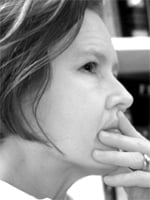We must ask ourselves what purpose is
ultimately served by this suspension of
all the accepted unities
if, in the end, we return to the unities
that we pretended to question at the outset.
In fact,
the systemic erasure of all given unities
enables us first of all to restore to
the statement the specificity
of its occurrence, and to show
that discontinuity
is one of those great accidents
that create cracks
not only in the geology of history,
but also in the simple fact
of the statement;
it emerges in its historical irruption;
what we try to examine is the incision
that it
makes, that
irreducible— and very often tiny
—emergence.
However banal it may be,
however unimportant its consequences may appear to be,
however quickly it may be forgotten after its appearance,
however little heard or however badly deciphered
we may suppose it to be,
a statement is always an event
that neither the language (langue) nor the meaning
can quite exhaust.
It is certainly a strange event:
first, because on the one hand
it is linked to the gesture of
writing or to the articulation of
speech,
and also on the other hand
it opens up to itself a residual existence
in the field of a memory, or in the materiality of manuscripts,
books, or any other form of recording;
secondly, because, like every
event,
it is unique, yet subject to repetition, transformation, and reactivation;
thirdly, because it is linked not only to the situations that provoke it, and to the consequences
that it gives rise to, but at the same time, and in accordance with a quite different modality, to
the statements that precede and
follow it.
Copyright © 2011 by Vanessa Place. Used with permission of the author.

